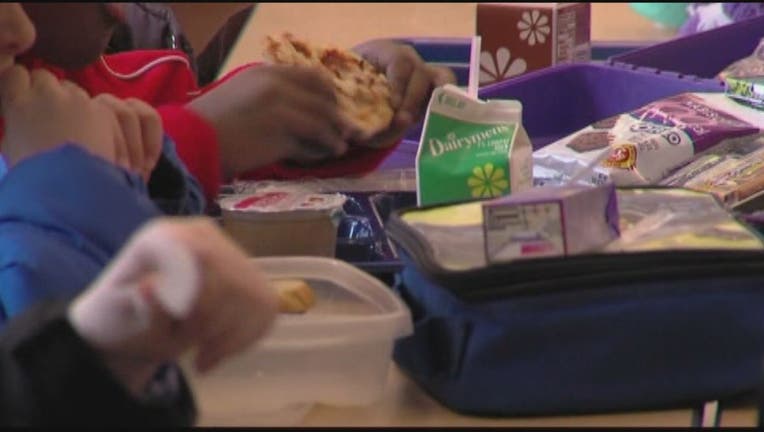Michigan gets first approval for federal program to help feed kids amid COVID-19 crisis

(FOX 2) - The USDA has approved a new program in Michigan to help feed children during the COVID-19 crisis.
The Pandemic Electronic Benefit Transfer (EBT) will give money to families of children who are eligible for free or reduced-price meals dealing with school closures.
“Michigan is the first in the nation to get this approval and we are incredibly pleased about that,” Gov. Gretchen Whitmer said at a press conference Thursday afternoon.
The food assistance benefits will go to Michigan families with students ages 5-18 who are enrolled in the Michigan Department of Education program for students eligible for free or reduced-price school meals, and will reach approximately 895,000 students. This includes families currently receiving Food Assistance Program benefits as well as those not currently enrolled in the program.
Families not currently receiving food assistance benefits will receive an EBT card, and families currently receiving food assistance benefits will receive additional benefits on their EBT Bridge Cards.
Gov. Whitmer says the value will be about $193 per child per month, and that this program means $172 million a month will now be going to Michigan families and kids.
Benefits for all eligible school-aged children in the home will be loaded onto this one EBT card.
Prior to receiving the card, families will get a letter from MDHHS describing how to use their EBT card, how to set up their PIN, and other pertinent information about food assistance benefits. EBT cards can be used much like a debit card for food items only purchased in-person at SNAP retailers.
This program is in addition to meals already being distributed at school sites, and is authorized by the Families First Coronavirus Act (FFCRA), signed by President Trump.

What is coronavirus?
From how it spreads to where it originated, here's a look at everything you need to know about the deadly contagion.
Gov. Whitmer ordered all schools to remain closed for the remainder of the academic year amid the virus emergency.
On Thursday, she also extended the stay-home order until the end of April.
Michigan, especially Detroit and surrounding communities, has been one of the hardest-hit states. As of Thursday, it had more than 21,000 cases and 1,000 deaths.

